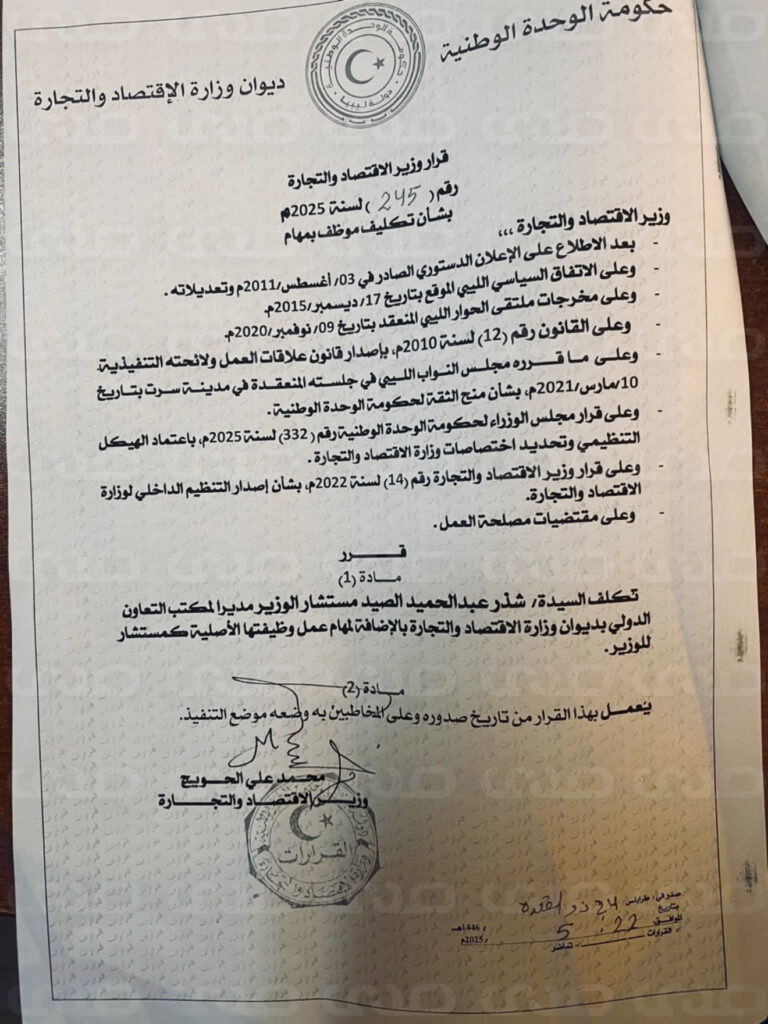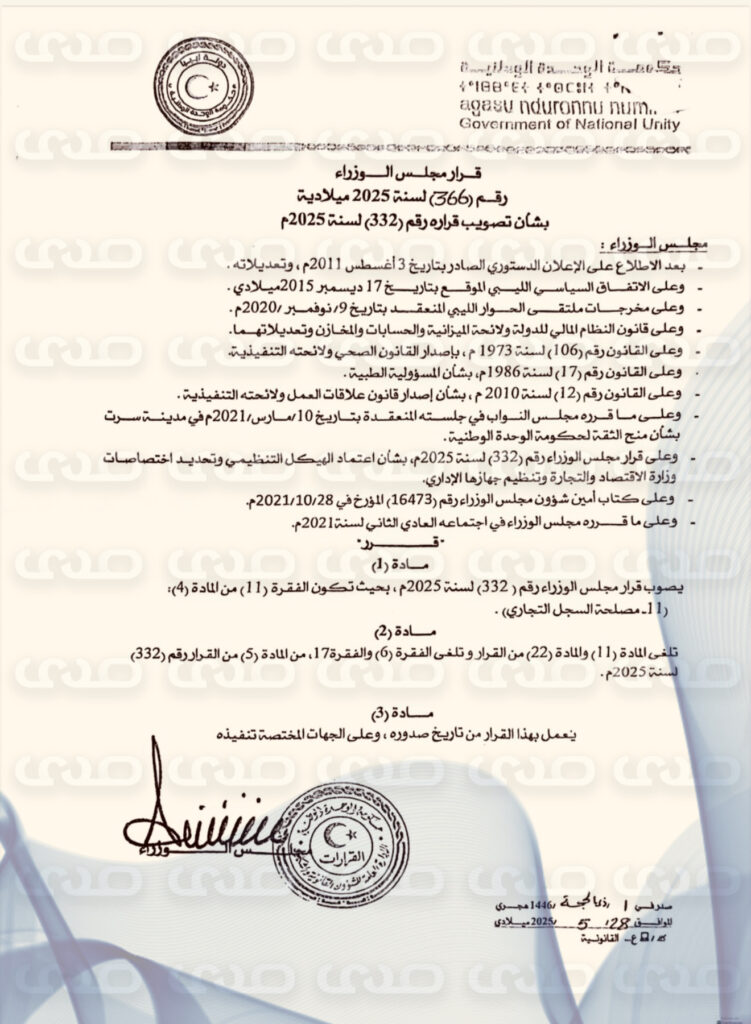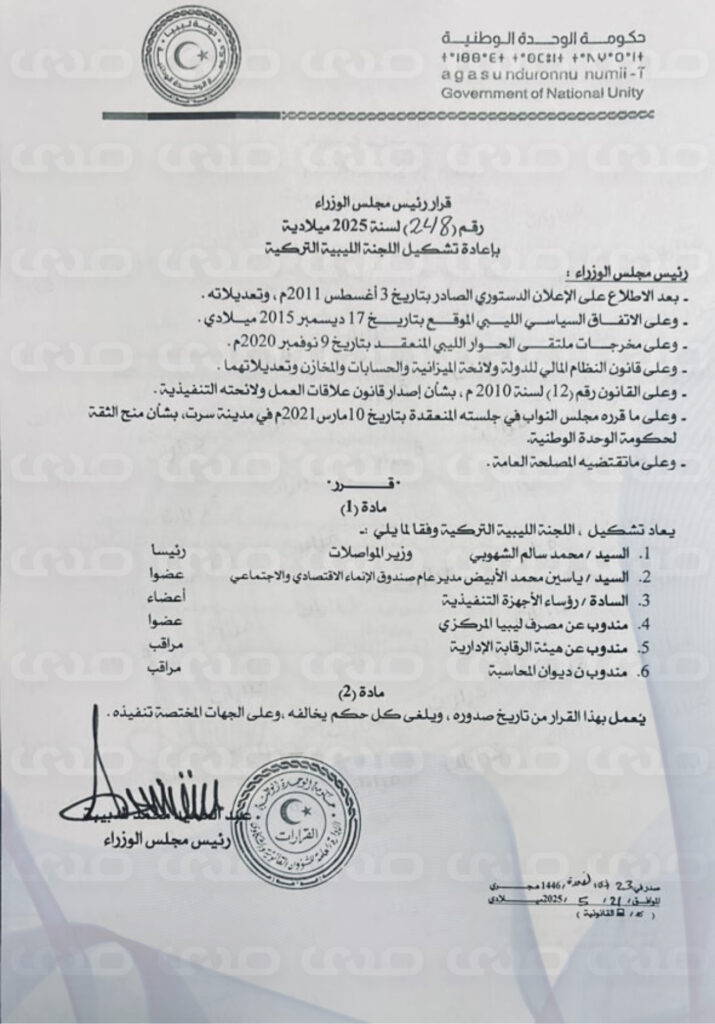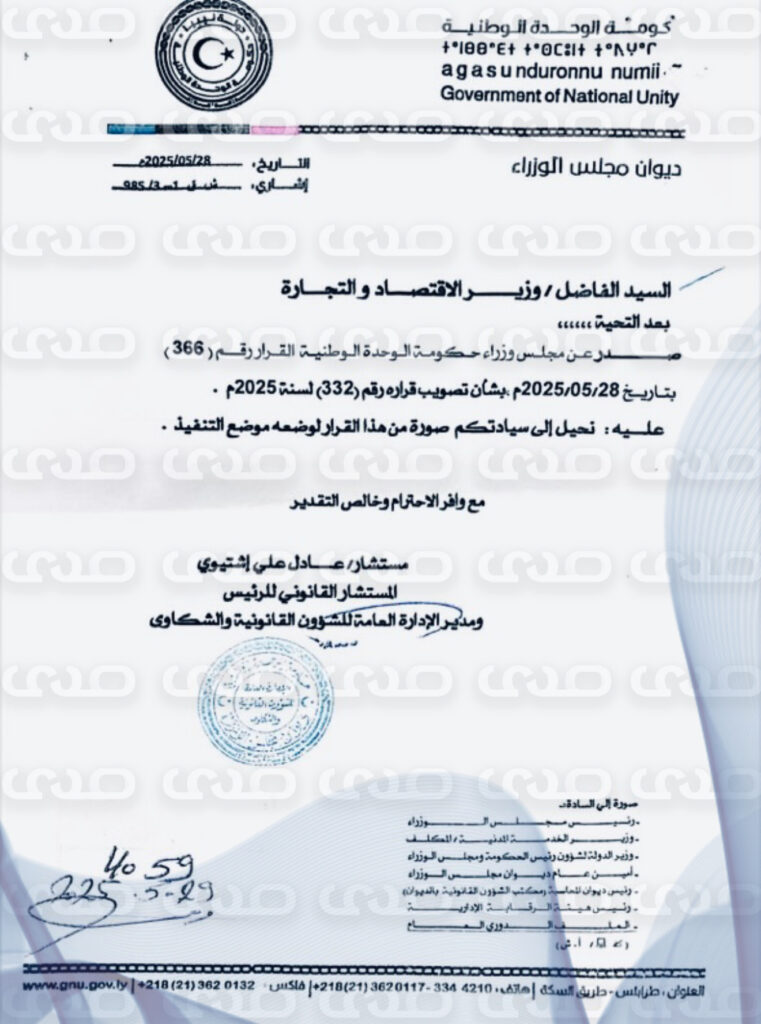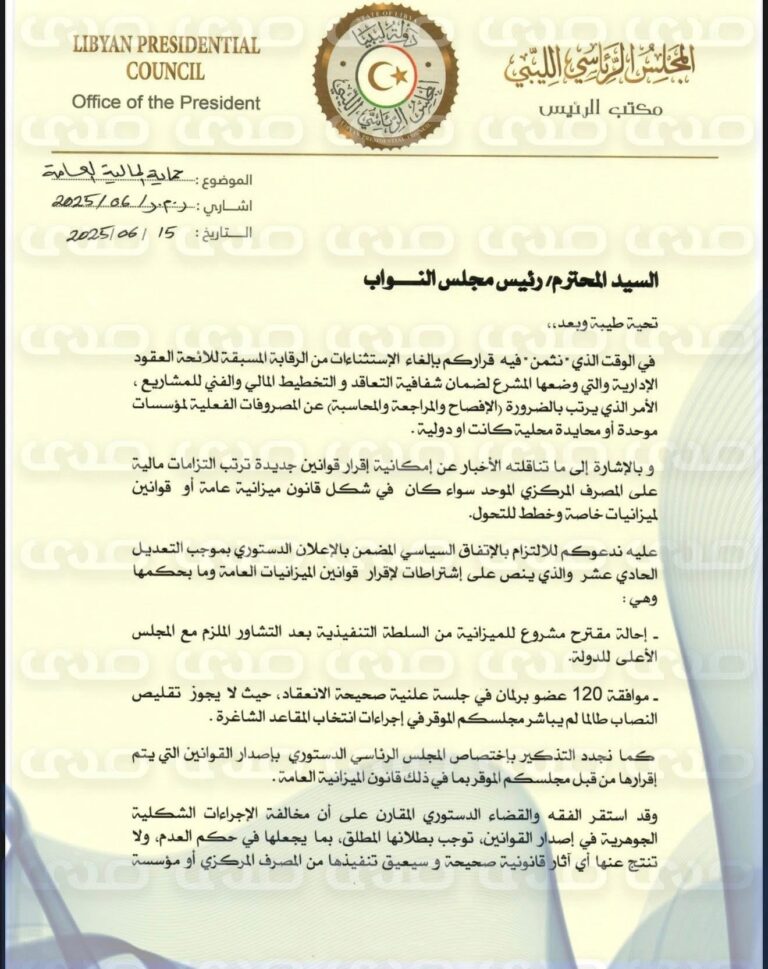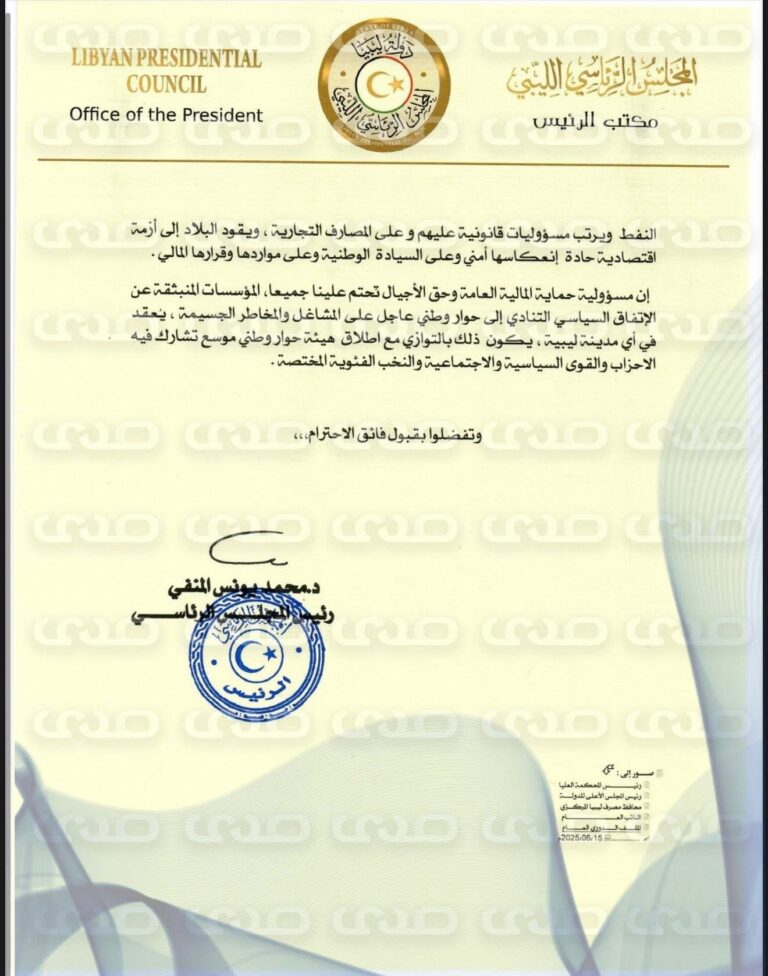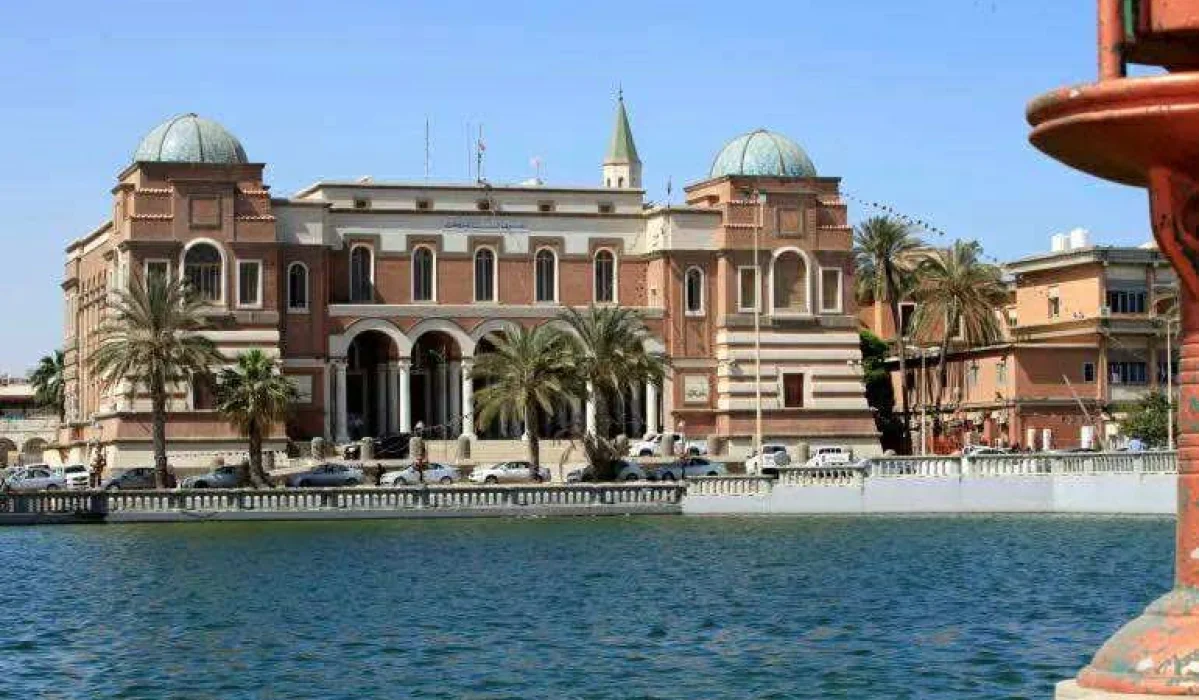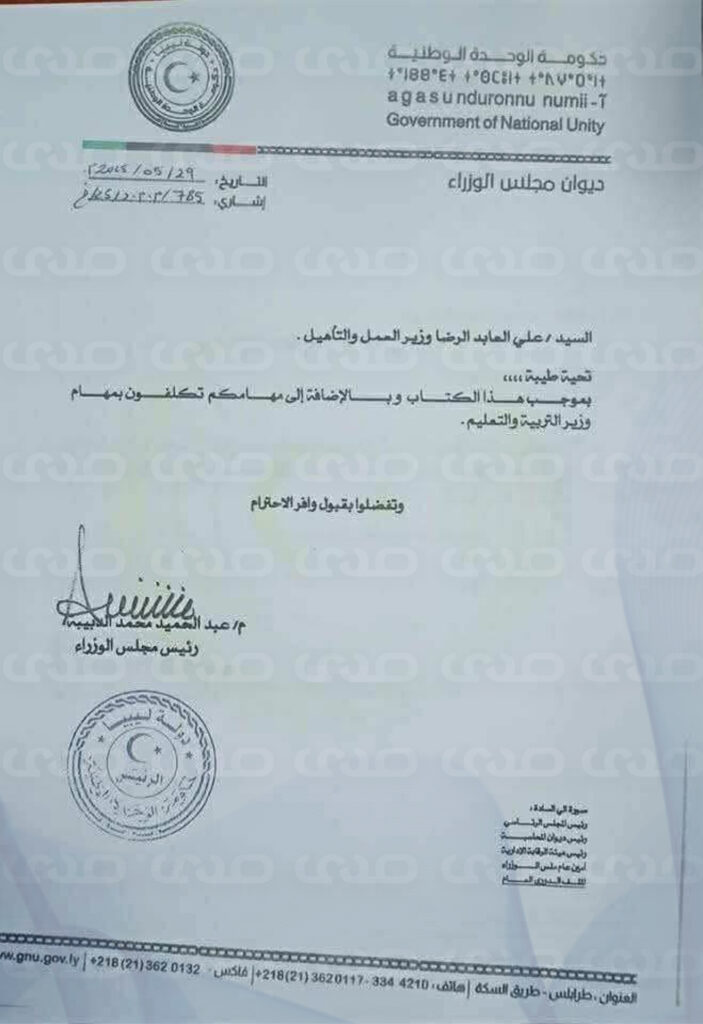The economic expert Mohamed Al-Safi writes: A lost decade of Libyan economic policy.
Since 2014, the Libyan economy has faced a prolonged period of contraction and instability—what I refer to here as a “lost decade” in Libya’s economic history. Libya has been severely impacted by political division, armed conflict, and unsustainable fiscal policies, which together have driven the country into a state of economic fragility. The ongoing turmoil, coupled with high inflation and reckless fiscal expansion, has increased the economy’s dependency on oil revenues.
Between 2012 and 2023, Libya’s GDP declined by over 40%, falling from $93 billion to just $50 billion. This downturn reflects the severe disruptions caused by governmental fragmentation and the periodic halts in oil production due to conflict. Inflation, which fluctuated widely, reached 35% in 2017, eroding the purchasing power of ordinary Libyans. Meanwhile, the Libyan dinar saw a significant decline, plummeting from 1.27 LYD/USD in 2012 to 6.4 LYD/USD by 2025, exacerbating the economic challenges facing the country.
All of these economic problems have cost us a full decade of economic development and institution building.
The Problem: Fiscal Schizophrenia
Libya faces an impending public finance crisis driven by the massive gap between spending and revenue. The existence of two rival governments—each with ambitious (but poorly planned) development agendas—has escalated fiscal pressures, as both authorities pursue overlapping and often conflicting spending goals. This dual and de facto governance system has led to uncoordinated fiscal expansion, further straining already limited resources.
Additionally, Libya urgently needs reconstruction after years of conflict and the devastation caused by Storm Daniel, which killed thousands and demands significant investment in infrastructure, healthcare, education, and other public services. Achieving these reconstruction goals will become increasingly difficult without sound fiscal management, especially given the country’s limited fiscal space.
Meanwhile, Libya’s foreign currency reserves are under immense pressure. Rising public debt, higher import costs, and political instability have increased demand for foreign currency, raising the risk of reserve depletion and fueling parallel market activity. The situation is worsened by a sharp drop in revenue, especially from oil, due to egregious practices such as crude-for-fuel swaps.
This disconnection between rising expenditures and falling revenues is a ticking time bomb. Without immediate fiscal reform—including improved intergovernmental coordination, planned reconstruction spending, and diversified revenue streams—Libya risks a full-blown financial crisis.
The Solution? Defuse the Financial Bomb
To address Libya’s fiscal gap caused by rising expenditures and declining revenues, I propose a two-pillar approach: introducing a budget cap to manage excessive spending and reducing oil revenue dependence by earmarking non-oil revenues for certain budget sections.
Pillar 1: Budget Capping
A budget cap should be introduced to fix annual government spending at an agreed amount for multiple years. This agreed cap should consider the country’s development needs (e.g., areas affected by Storm Daniel and ongoing development projects) and the stabilization of the foreign exchange rate. A budget ceiling would bring several benefits:
– Breathing space for the Central Bank to reset the macroeconomy: The economic “temperature” (inflation) is currently very high, and the Central Bank needs a stabilization period of at least 3 years to reduce this. A capped budget over three years will give the Bank sufficient time to use its tools to manage the bloated money supply.
– Reduce pressure on foreign reserves: By capping spending for three years, reserve pressures will ease, stabilizing the Libyan currency.
– Contain money supply: Budget constraints will reduce market liquidity, easing inflationary pressures.
– Limit debt accumulation: A budget ceiling will prevent further public debt buildup and reduce fiscal risk.
– Encourage fiscal discipline: Government agencies will be compelled to manage resources more efficiently.
Since the country’s current leadership operates with a contractor’s mindset, perhaps the concept of “budget capping” will resonate with decision-makers who are “contractors.”
Pillar 2: Earmarking Non-Oil Revenues for Specific Budget Sections
With oil revenues, there’s little incentive to expand non-oil revenue collection. However, revenue diversification is essential for sustainable fiscal management, especially given global oil price volatility and instability in the parallel exchange market.
The proposal: Allocate non-oil revenues and link them to Chapter Two (operational expenses) of the budget. This would be done by legally stipulating that Chapter Two expenditures cannot be funded by oil revenues but only by non-oil revenues. This creates an incentive to collect and register such revenues in state accounts (currently, many such revenues are collected at source and never reach the treasury). This process, known in economics as Earmarking—or “tawsīm” in Bedouin parlance—is widely used globally. Libya itself adopted it in 2010 when part of the salary budget was directly tied to non-oil revenues.
Chapter Two is deliberately chosen as it’s the least directly beneficial to citizens. Reducing it temporarily to entrench this fiscal practice (i.e., increasing attention to non-oil revenues) would not significantly affect the population.
Two ways to improve non-oil revenue streams for earmarking:
- Enhance collection from existing non-oil revenue sources such as telecommunications, taxes, customs, and government services.
- Develop new sources of non-oil revenue. One potential source is the liquidation of underperforming state-owned enterprises (SOEs). These SOEs were intended to provide additional revenue streams but ended up draining the budget due to mismanagement and lack of incentives.
Benefits of earmarking include:
– Increased government revenue capacity: Expanding non-oil revenue streams enhances financial independence.
– Reduced oil dependence: Revenue diversification will shield the budget from oil price drops, making it more resilient to global market volatility.
– Stabilized foreign currency reserves: Less dependence on oil revenues will help maintain stronger foreign reserves even during low oil price periods—positively affecting the exchange rate and inflation.
Mechanism: Enforcing the Budget Law, with Amendments
Implementation of this public finance reform proposal must comply with Libyan state law. The national budget must return to standard legal procedures, where the budget law is drafted and approved by the legislative authority and implemented by the executive.
The 2025 budget law must include specific provisions setting a budget cap (in Libyan dinars) for several years and specify which budget chapters will be funded by non-oil revenues.
1. Budget Cap
– Conducting a technical dialogue on the budget: A technical dialogue on the budget must be initiated with the participation of state institutions, represented by the two governments, the Central Bank of Libya, and representatives of the legislative council. Non-governmental actors—including civil society organizations, independent economic experts, and academic professionals—should also be included in this dialogue. Their inclusion will ensure public participation and transparency in decision-making. This dialogue should focus on establishing a realistic budget ceiling for the fiscal years 2025, 2026, and 2027 and ensuring that it aligns with current economic challenges.
– Legislating the budget ceiling in the 2025 budget law: The legislative authority must codify the budget ceiling in the 2025 budget law, clearly specifying the exact amount in Libyan dinars and explicitly stating that this ceiling is valid for three years. This will prevent the Central Bank from having to fight the same battle every year. This ceiling will ensure fiscal discipline. If passing the ceiling is delayed for several years, the law should also include a clause that allows spending up to 1/12 of the approved budget for each subsequent month in case of delays in passing future budgets. This ensures financial and monetary stability.
– Linking the budget to the political process: A clause in the budget law should state that the 2025 budget will remain valid until a new parliament and/or president is elected. This creates a direct link between public financial reforms and the political process, providing an incentive for political actors to move toward elections in order to update or revise the budget framework.
– Ensuring flexibility within the ceiling: The budget law must clarify that although there is flexibility in how government spending is allocated within the allowed limit, no government entity can exceed the budget ceiling. This allows for oversight of public finances while enabling the government to allocate resources flexibly based on changing priorities.
2. Allocation of Non-Oil Revenues
– Structure of the Libyan budget: The Libyan budget consists of five chapters: salaries, operational (Chapter 2), development (Chapter 3), subsidies, and emergency funds. Salaries and subsidies are fixed expenditures that require stable revenue sources, while operational and development expenses are more volatile and flexible.
– Allocating Chapters 2 and 3 to non-oil revenues: In the 2025 budget law, clear allocations must be specified for the operational (Chapter 2) and development (Chapter 3) chapters, given that they are variable and subject to discretionary spending.
- Chapter 2 (operational) should be funded from recurring non-oil revenues such as telecommunications profits, customs duties, and taxes. These consistent revenue sources will help fund operating costs. The government will be incentivized to collect them efficiently because, without them, it cannot spend on this chapter. (Translation of the local flavor: No non-oil revenues, no Camry cars for the Agricultural Police.)
- Chapter 3 (development) can be funded by liquidating underperforming state-owned enterprise (SOE) assets. Many of these SOEs have not made profits for years, costing the state millions of dinars. Liquidating these assets would provide necessary resources for development initiatives and support economic diversification. Although the exact value of these assets is unknown, many experts estimate them to be worth billions. Once liquidated, these funds should be placed in a dedicated, ring-fenced fund and used solely to finance development efforts.
Conclusion
This mechanism ensures that the Libyan public financial reform proposal is rooted in the country’s legal framework, making it a sustainable and transparent solution. Combining a budget ceiling with diversified revenue sources through targeted allocations will enhance fiscal stability, reduce inflationary pressures, and create a more sustainable financial environment in Libya. These measures will also serve as an incentive to advance the political process toward elections while promoting fiscal discipline and economic diversification.
The change in leadership at the Central Bank of Libya presents a unique opportunity for reform. In a decade marked by divisions and missed opportunities, this momentum is a significant chance to implement lasting changes in public finance. It is essential to act quickly and decisively while this opportunity still exists, to ensure Libya takes meaningful steps toward long-term economic stability and prosperity.





